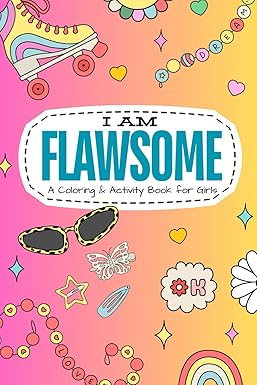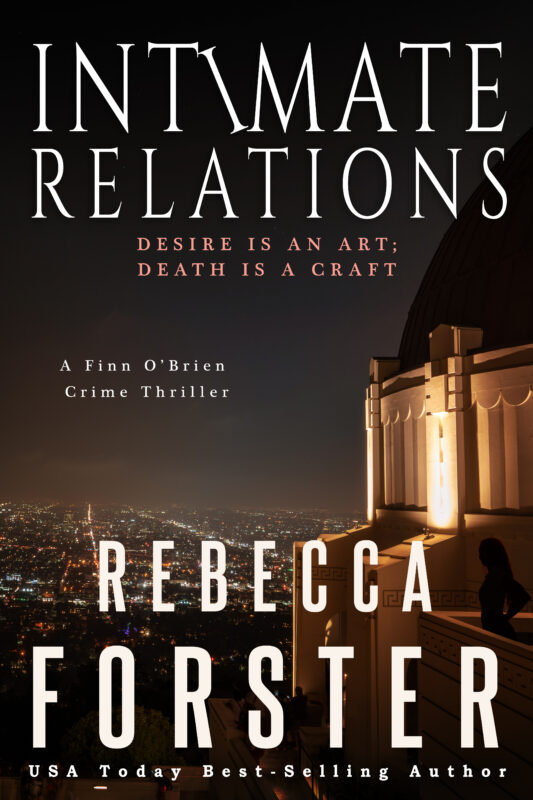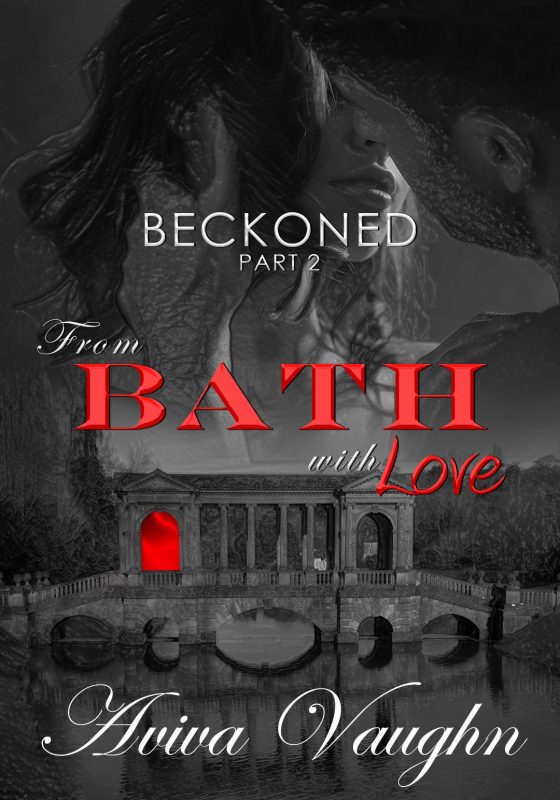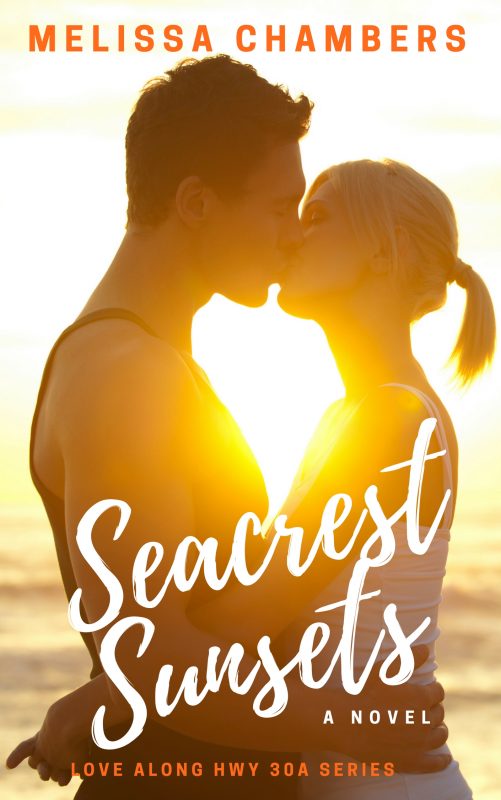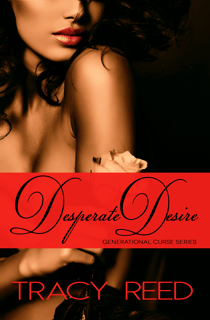PORTMANTEAUS by Jenny Jensen
September 19, 2021 by Jenny Jensen in category On writing . . . by Jenny Jensen tagged as creative writing, English, language, portmanteau
We’re so lucky. The English language is like play dough.
Oh yes, we have strict rules of grammar, tense, POV, all the way to the minutia of intransitive verbs. We can choose from a number of eminent grammar and style guides to ensure conformity. We have stalwart English teachers to drill those rules into our heads so that we are all on the same page. (And bless them all – there is nothing better than order over chaos). But despite those rules a writer has so much freedom to shape our mother tongue into forms wry, brittle, silly, heartbreaking, snarky or just plain mad.
I don’t have much command of any other language; a smatter of German, a soupçon of French, about a third cup of Latin and a healthy plateful of Spanish. But I do know that the rules of those languages are not as forgiving as English — not as much room to roam before you run afoul of the language police. English allows us to mangle all the rules of spelling, meaning, and sentence structure to reflect dialect, or character traits, add color, shift perceptions or mood and anyone with a good command of English can understand — and only pedants ever complain. Of course, you have to use the rules of punctuation. Gotta have those traffic signs.
Anthony Burgess used bits and pieces of Russian mixed with Shakespearian English and other tongues to give us Nadsat, the terrifyingly unique argot of his dark characters in A Clockwork Orange. The reader may have had to work at it a bit, but it was intelligible and colored the story with an unforgettable feel. Fantasy and Sci Fi from J.K. Rowling to Ursula K. Le Guin play with all sorts of mixed up language that become magical words and when you’re reading in those worlds you understand.
Dialect and special vocabulary enrich a tale on many levels and I’m in awe of those writers who do them well, but my favorite form of play dough English is the portmanteau. Anybody can create one of these inventive combinations, and everybody does — usually with something faintly deprecating or ironically funny in mind. And with just one word a portmanteau can ooze with meaning. Frenemy speaks volumes — we’ve all had one and it’s exhilarating to give ‘em a proper name. Craptacular very neatly wraps up the verdict on so much of our over-hyped media. And then there’s pompidity, my own invention from University days when I struggled to describe the quality of politicians.
All writers love words. Words are paint, chisel, fabric, and clay for our creativity. If you can’t find that one word that perfectly reflects your intent, try cobbling a new one together — no one will take points away. Blog is a portmanteau (web log) so if you’re lucky enough to have your portmanteau go viral, you might wind up in the OED.
Jenny
3 0 Read moreMake Mine Slang by Jenny Jensen
August 19, 2021 by Jenny Jensen in category On writing . . . by Jenny Jensen tagged as characterization, language, Planning, research, Slang, Writer's Toolbox
This character, Tall T Reynolds, is growing in my mind. I can see him tanned and raw and a bit dusty. I know his world is the 1940’s rural west and I know he’s going to briefly meet Lottie, a beautiful girl in a gleaming open topped coupe. Their brief exchange will never leave his mind. Soon after, Tall T will go off to war in Europe. He and Lottie will meet again in a most unexpected way.
I want these two MCs to be drawn as very different in all ways but the heart. I want to show those differences subtly and naturally. I want to tell the story mostly in dialog, no long narratives, no narrative tells. I know that means voice and tone will have to be pitch perfect so it’s language that shows their differences, that makes each wholly human and credible. I thought about using dialect but rejected the idea. I don’t trust my skills to pull that off successfully. Besides, they are both smart and fairly well educated. This is not a rustic pauper gets the princess story. Still, they are from very different worlds – until they’re not.
After rummaging about a bit in the writer’s toolbox, I’m thinking slang as a way to initially set them apart and ultimately bring them together. Slang is an interesting critter. It’s a very flexible tool. It’s hard to pin down what is slang and what isn’t. Slang changes so fast. Yesterday’s ‘far out’ is today’s ‘snatched’, but it’s pretty clear what slang does for us. The casual use of slang terms show we’re in the know, we belong to that group who understands what it is to ‘I oop’. More to my purposes, slang is a shared affinity of age and disposition and attitude.
Slang can be subversive, playful, derisive, affectionate, even endearing – all such very human qualities – and human is what I want to show in circumstances that aren’t all that humane. Ever changing, almost updating itself to fit shifting circumstances slang morphs from common terms to become familiar to a community who is living and sharing shifting circumstances. How else explain today’s use of ‘ghost’? Slang can turn meaning topsy turvy, assigning an opposite meaning to words – an effective response to a world that feels turned upside down. To say you ‘destroyed’ something today certainly doesn’t mean to me what it means to a teen.
Because slang is a hallmark of a shared, exclusive world it’s the perfect devise to reinforce the journey of Tall T and Lottie through the chaos of a world war to a shared reality. They will be tested in ways they’ve never imagined in a world where familiar conventions don’t always apply and time can be frightfully short. At their first meeting, Lottie’s language will baffle Tall T; he will know from that brief exchange that they are from very different worlds. By the end, they will share an unspoken understanding of how fubar life can be. They’ll both know the world is cockeyed and with one exchange of peepers they’ll know where to meet because they have all the dope on the good places. They are people with plenty of moxie who become each other’s killer diller.
I will be careful though. I don’t want them to sound like they’re trying too hard to be cool, or are too stupid to express themselves in any other way. I want to salt the slang effectively, add just that kick of heat a touch of chili adds to a good stew. Like seasoning, I’m going to need a deft hand. I can imagine how clumsy a slang word could feel, or how tiresome the overuse could become. There’s a lot of revision ahead for me if I’m going to Keep it 100. Forewarned is forearmed. I’ll stop beating my gums now and immerse myself in the slang of The Greatest Generation. Roger. Wilco.
Cross Words by Jenny Jensen
December 19, 2020 by Jenny Jensen in category On writing . . . by Jenny Jensen tagged as cross words, fun, Jenny Jensen, language, puzzles, words
In these times of pandemic lock down we’re all searching for something that will absorb us, entertain, teach–challenge us. I’ve dabbled in baking (very mixed results), sewing (mended everything mendable), crafty things (be glad you’re not on my Christmas list), knitting (have you seen the price of good wool?). They all passed the time between books, but none inspired a passion and I didn’t feel particularly challenged.
My grandmother and my mother were both avid cruciverbalists. Not only does that sound exotic, it felt like I’d be carrying on a tradition. Those esteemed women fearlessly challenged their brains daily. I bought a puzzle book with 99 crosswords claiming to “be enjoyable at all solving levels”. Perfect! I could limber up and go on to the hard stuff.
I felt I had gotten the knack with the first 30 puzzles. Sharp flavor, four letters–TANG. This is a breeze. The next 56 began to take some effort: Central parts, six letters, fifth being ‘e’. Hmmm. I consider all things central and am not arriving at those 6 letters, the fifth of which is ‘e’. Then I crossed words with Tile problem and MILDEW gives me ‘L’ for the fourth letter. I hit on nuclei. I got it! Central parts: NUCLEI pl. I am strutting like a peacock, never mind that it isn’t a commonly used word. “The nuclei of the garden are the tulips and the erotic statue.” Naw. Clearly this is a new language.
I like to think I am an honest sort, so I keep count of how many times I peek at the answers page. Eight times over 86 puzzles; a mere misdemeanor. Many of the clues involve rather esoteric and antiquated knowledge. I feel I can be forgiven for not knowing every letter of the Greek alphabet or the lessor characters of 19th century French drama. I now include recent pop music titles among esoteric knowledge. I do not know a single Abba song title. (This leaves me feeling hopelessly uncool, but never mind.)
Still, I’m getting better–that is, until number 87. I feel like I’m taking an exam in advanced astrophysics–and it’s in Brail. Philanthropy source, 11 letters. I get there finally with the help of crossed words: BILLIONAIRE. It’s so obvious, so clear and so disheartening that I’d agonized over this. Then a light bulb goes on and I realize crosswords do not involve a new language. It’s still English (except for those pesky Greek letters). What is needed here is an entirely different thought process, a less rigid way of considering words.
I need to be flexible, more elastic than Silly String, more malleable than Play Dough. How else can you arrive at ROLE as the answer to Office? It’s all those English words with multiple meanings, all the nuances of our language that makes for rich, lyrical writing. It’s the forgiving nature of our language that allows us to get by with radical interpretation, lets us stretch the truth, so to speak. I’d been ignoring what I already know and what I love so much about writing.
Puzzle 88 is next and it looks daunting. It’s a giant grid with one and a half pages of clues. I’m going to be like water and with each clue let my mind flow over and under, through and past pedestrian definition until I arrive at the clever stretch, the humorous bent, the deceptively simple answer. It’s poetic.
I’m determined to join the ranks of my foremothers and become a cruciverbalist. I may pull out all my hair, but I intend to get there. I am definitely Faced off, 10 letters.
Cooking with Words
August 19, 2018 by Jenny Jensen in category On writing . . . by Jenny Jensen tagged as cooking, language, words, writing

Words are a writer’s ingredients. We love words – obscure words, descriptive or emotional words, those sets that make up the language of a specialty. Creating a passage of the perfect words hits the poetic, emotional and dramatic sweet spot — it’s more satisfying than a perfectly risen soufflé. Those words are not always based on literal meaning; otherwise Oscar Wilde would never have written: “The curves of your lips rewrite history.”
I have always been taken with the vocabulary of cooking. This is probably because I can’t cook. Maybe I think if I learn that vocabulary I can wield it like an incantation and my split pea soup will magically look less frightening, smell inviting and even taste good. It hasn’t worked but culinary terms, as a set of words, continue to surprise me — they’re just so aggressive.
Macerate, whip, beat, truss, pulverize, grind, batter, beat, scald. Whoa! All this to get something beautiful, delicious and nutritious? It works for most cooks. No matter how I slice or dice, shred, mince or mash, it seldom works for me. Must be in how you understand the terms and in nuance of use. Culinary terms work just as well to describe a cage fight as they do with a recipe for Angel Food cake.
Jared didn’t blanch facing the mountain that was Killdeer Kilze. He’d whip this fight up – he had to – the kids hadn’t eaten in two days. Time to mince this guy and reduce his essence. Zest infused Jared’s system, juicing his blood as he minced the mountain’s nose with one lethal chop, shred his kneecap with another. Scalded by the roar of the drunken crowd he beat at the massive chest, macerating the ribs. Sliced, diced and filleted to perfection, Killdeer Kilze lay trussed like the appetizer he was. The kids would dine well tonight.
Cooking is a gentle, homey pursuit – though some of those chef shows can be down right bloody so maybe it’s the competitive aspect that accounts for the aggressive feel. These words aren’t really homonyms. They sound alike and are spelled alike but they don’t have different meanings. The difference is in the sense of the meaning.
Linguists and other learned folk call this fine distinction, Polysemy. It’s the distinction that good writers always make. It’s part of why poetry can rock your world. Seeking just the right words with just the right nuance can make a love scene monumental rather than simply sweet, or enfold the reader in the sight, smell and sound of a setting. It’s the choice and use of the right words that makes a story linger in the reader’s heart — something every writer wants.
I do wonder how our language developed to make this particular set of words work for such opposing concepts. Is there a conflicted warrior inside every woman? I don’t know but if I dig far enough I’m sure theories abound. And while I ponder this conundrum I do it…again. I fritter my time away on obscure concepts and my carefully mixed cornbread hits the cooling rack and bounces. It sounds like a hollow rock. Clearly, it takes more than knowing the right language to make a great cook. But it is knowing the right nuanced words that makes a great book.
Jenny
3 0 Read more
PORTMANTEAUS by Jenny Jensen
March 24, 2018 by Jenny Jensen in category On writing . . . by Jenny Jensen tagged as creative writing, English, language, portmanteau
We’re so lucky. The English language is like play dough.
Oh yes, we have strict rules of grammar, tense, POV, all the way to the minutia of intransitive verbs. We can choose from a number of eminent grammar and style guides to ensure conformity. We have stalwart English teachers to drill those rules into our heads so that we are all on the same page. (And bless them all – there is nothing better than order over chaos). But despite those rules a writer has so much freedom to shape our mother tongue into forms wry, brittle, silly, heartbreaking, snarky or just plain mad.
I don’t have much command of any other language; a smatter of German, a soupçon of French, about a third cup of Latin and a healthy plateful of Spanish. But I do know that the rules of those languages are not as forgiving as English — not as much room to roam before you run afoul of the language police. English allows us to mangle all the rules of spelling, meaning, and sentence structure to reflect dialect, or character traits, add color, shift perceptions or mood and anyone with a good command of English can understand — and only pedants ever complain. Of course, you have to use the rules of punctuation. Gotta have those traffic signs.
Anthony Burgess used bits and pieces of Russian mixed with Shakespearian English and other tongues to give us Nadsat, the terrifyingly unique argot of his dark characters in A Clockwork Orange. The reader may have had to work at it a bit, but it was intelligible and colored the story with an unforgettable feel. Fantasy and Sci Fi from J.K. Rowling to Ursula K. Le Guin play with all sorts of mixed up language that become magical words and when you’re reading in those worlds you understand.
Dialect and special vocabulary enrich a tale on many levels and I’m in awe of those writers who do them well, but my favorite form of play dough English is the portmanteau. Anybody can create one of these inventive combinations, and everybody does — usually with something faintly deprecating or ironically funny in mind. And with just one word a portmanteau can ooze with meaning. Frenemy speaks volumes — we’ve all had one and it’s exhilarating to give ‘em a proper name. Craptacular very neatly wraps up the verdict on so much of our over-hyped media. And then there’s pompidity, my own invention from University days when I struggled to describe the quality of politicians.
All writers love words. Words are paint, chisel, fabric, and clay for our creativity. If you can’t find that one word that perfectly reflects your intent, try cobbling a new one together — no one will take points away. Blog is a portmanteau (web log) so if you’re lucky enough to have your portmanteau go viral, you might wind up in the OED.
Jenny
4 0 Read more
Affiliate Links
A Slice of Orange is an affiliate with some of the booksellers listed on this website, including Barnes & Nobel, Books A Million, iBooks, Kobo, and Smashwords. This means A Slice of Orange may earn a small advertising fee from sales made through the links used on this website. There are reminders of these affiliate links on the pages for individual books.
Search A Slice of Orange
Find a Column
Archives
Featured Books
INTIMATE RELATIONS
A woman in a window. A cop out of his element. A crime of unimaginable passion.
More info →BECKONED, PART 2: FROM BATH WITH LOVE
Can fire and ice both survive?
More info →DESPERATE DESIRE
How desperate do you have to be, to break your marriage vows?
More info →Newsletter
Contributing Authors
Search A Slice of Orange
Find a Column
Archives
Authors in the Bookstore
- A. E. Decker
- A. J. Scudiere
- A.J. Sidransky
- A.M. Roark
- Abby Collette
- Alanna Lucus
- Albert Marrin
- Alice Duncan
- Alina K. Field
- Alison Green Myers
- Andi Lawrencovna
- Andrew C Raiford
- Angela Pryce
- Aviva Vaughn
- Barbara Ankrum
- Bethlehem Writers Group, LLC
- Carol L. Wright
- Celeste Barclay
- Christina Alexandra
- Christopher D. Ochs
- Claire Davon
- Claire Naden
- Courtnee Turner Hoyle
- Courtney Annicchiarico
- D. Lieber
- Daniel V. Meier Jr.
- Debra Dixon
- Debra H. Goldstein
- Debra Holland
- Dee Ann Palmer
- Denise M. Colby
- Diane Benefiel
- Diane Sismour
- Dianna Sinovic
- DT Krippene
- E.B. Dawson
- Emilie Dallaire
- Emily Brightwell
- Emily PW Murphy
- Fae Rowen
- Faith L. Justice
- Frances Amati
- Geralyn Corcillo
- Glynnis Campbell
- Greg Jolley
- H. O. Charles
- Jaclyn Roché
- Jacqueline Diamond
- Janet Lynn and Will Zeilinger
- Jaya Mehta
- Jeannine Atkins
- Jeff Baird
- Jenna Barwin
- Jenne Kern
- Jennifer D. Bokal
- Jennifer Lyon
- Jerome W. McFadden
- Jill Piscitello
- Jina Bacarr
- Jo A. Hiestand
- Jodi Bogert
- Jolina Petersheim
- Jonathan Maberry
- Joy Allyson
- Judy Duarte
- Justin Murphy
- Justine Davis
- Kat Martin
- Kidd Wadsworth
- Kitty Bucholtz
- Kristy Tate
- Larry Deibert
- Larry Hamilton
- Laura Drake
- Laurie Stevens
- Leslie Knowles
- Li-Ying Lundquist
- Linda Carroll-Bradd
- Linda Lappin
- Linda McLaughlin
- Linda O. Johnston
- Lisa Preston
- Lolo Paige
- Loran Holt
- Lynette M. Burrows
- Lyssa Kay Adams
- Madeline Ash
- Margarita Engle
- Marguerite Quantaine
- Marianne H. Donley
- Mary Castillo
- Maureen Klovers
- Megan Haskell
- Melanie Waterbury
- Melisa Rivero
- Melissa Chambers
- Melodie Winawer
- Meriam Wilhelm
- Mikel J. Wilson
- Mindy Neff
- Monica McCabe
- Nancy Brashear
- Neetu Malik
- Nikki Prince
- Once Upon Anthologies
- Paula Gail Benson
- Penny Reid
- Peter J Barbour
- Priscilla Oliveras
- R. H. Kohno
- Rachel Hailey
- Ralph Hieb
- Ramcy Diek
- Ransom Stephens
- Rebecca Forster
- Renae Wrich
- Roxy Matthews
- Ryder Hunte Clancy
- Sally Paradysz
- Sheila Colón-Bagley
- Simone de Muñoz
- Sophie Barnes
- Susan Kaye Quinn
- Susan Lynn Meyer
- Susan Squires
- T. D. Fox
- Tara C. Allred
- Tara Lain
- Tari Lynn Jewett
- Terri Osburn
- Tracy Reed
- Vera Jane Cook
- Vicki Crum
- Writing Something Romantic
Affiliate Links
A Slice of Orange is an affiliate with some of the booksellers listed on this website, including Barnes & Nobel, Books A Million, iBooks, Kobo, and Smashwords. This means A Slice of Orange may earn a small advertising fee from sales made through the links used on this website. There are reminders of these affiliate links on the pages for individual books.

